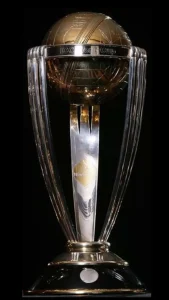The Role of Key Players in the ODI Cricket World Cup

Introduction
The ODI Cricket World Cup has been graced by legendary players who have left an everlasting impact on the tournament. From Sir Vivian Richards to Sachin Tendulkar, these cricketing icons have elevated the stature of the England Cricket World Cup, ICC T20 World Cup. ICC World Test Championship has featured outstanding performances that define careers and generate eternal legacies. The significance of individual brilliance cannot be overstated in a competition as fierce and fast-paced as the One-Day World Cup.
Take, for instance, India’s Sachin Tendulkar, who became the highest run-scorer in the history of World Cup cricket. His efforts in the ICC World Cup inspired generations of cricketers. Likewise, in the 2019 season, players like Rohit Sharma and Virat Kohli were important in India’s quest, even if they fell short of the final trophy. The influence of star players like Ben Stokes, who played a pivotal role in England’s historic victory, shows just how important individuals are in determining the outcome of the tournament.
The Importance of Team Strategy in the ODI Cricket World Cup
While individual brilliance is essential, the success of any team in the ODI Cricket World Cup ultimately depends on their collective strategy. The ability to plan well, adapt to the opposition’s strengths and weaknesses, and make important decisions under pressure situations is what differentiates the top teams from the others. A well-executed strategy can make the difference between winning the One-Day World Cup and falling short.
England’s win in 2019 was not only due to the heroics of their star players, but also the meticulous planning and strategy put in place by their coaching staff. They approached the tournament with a clear strategy: to play an aggressive brand of cricket with a focus on high scoring. Their ability to adapt quickly in pressure situations, such as in the Super Over against New Zealand, highlighted their preparedness for the biggest stage.
The ICC World Cup Format: A Challenge for All Teams
The format of the ODI Cricket World Cup plays a crucial effect in deciding the outcome of the competition. The format has altered throughout time, from a round-robin group stage to the more current arrangements where teams are separated into two groups. This structure adds an extra dimension of intrigue as teams must perform consistently over the duration of the event to reach the knockout stages.
The problem of the format is twofold. On one hand, teams have to be versatile, as they face numerous teams with different strengths. On the other hand, the England Cricket World Cup tests a team’s ability to maintain form and fitness throughout a month-long tournament. This grueling nature of the ICC World Cup makes it a true test of a team’s endurance and skill, unlike any other cricket competition in the world.
Emerging Teams and the Global ODI Tournament
One of the most exciting aspects of the ODI Cricket World Cup is the emergence of new teams that challenge the established cricketing powers. In recent years, teams such as Afghanistan and Bangladesh have demonstrated significant progress in the 50-over format. Their rise adds a fresh dimension to the tournament, making the ICC World Cup even more unpredictable and thrilling.
The growth of associate nations in world cricket has also led to more competitive matches, which keep fans on the edge of their seats. As cricket continues to expand globally, the One-Day World Cup is expected to become even more inclusive, with more teams vying for a spot in the knockout stages. These developing nations offer a new feeling of excitement and unpredictability to the Global ODI Tournament, making it one of the most intriguing athletic events on the calendar.
The Financial Impact of the ODI Cricket World Cup
The ODI Cricket World Cup is not only a sporting event but also an economic powerhouse. The tournament generates millions of dollars in revenue, from ticket sales to broadcasting rights and sponsorship deals. Hosting the One-Day World Cup is a massive undertaking for any nation, but the financial rewards are immense. The exposure and tourism boost that comes with hosting the ICC World Cup can leave a lasting impact on the host country’s economy.

In addition, the popularity of the tournament translates into enormous commercial potential for sponsors eager to capitalize on the global audience. The ICC World Cup provides a platform where big-name businesses can reach millions of spectators throughout the globe. As a result, the competition plays a crucial role in the evolution of the sport and its financial sustainability. With growing viewership, the Global ODI Tournament continues to capture the imagination of fans and sponsors alike.
The Influence of Technology on the ODI Cricket World Cup
In recent years, the ODI Cricket World Cup has seen significant technological advancements that have enhanced the fan experience and helped teams analyze their performances more effectively. Innovations such as Hawk-Eye for decision-making, as well as the use of data analytics, have altered the way cricket is played and viewed.
Technology has also played a crucial role in improving umpire accuracy and ensuring fair play. With the advent of the Decision Review System (DRS), players now have the opportunity to dispute on-field umpire decisions. This has made the One-Day World Cup more transparent and reliable, while also adding an element of drama as players wait for reviews to unfold. Technology’s influence on the ICC World Cup has improved the caliber of the tournament to new heights.
The Impact of the ICC T20 World Cup on the ODI Cricket World Cup
The ICC T20 World Cup has played a crucial part in determining the way the ODI Cricket World Cup is approached by modern nations. The rise of T20 leagues and the T20 World Cup has introduced a new generation of cricketers who are more comfortable with aggressive batting and fast-paced play. This has had a direct influence on the One-Day World Cup, with teams attempting to adapt similar techniques in the 50-over format.
The line between T20 and ODI formats has blurred, with players applying the attacking strategies and innovations learned from T20 cricket in their ODI games. Teams now focus on accumulating runs at a faster rate, and even bowlers are adopting more aggressive lines and lengths to keep the pressure on the batsmen. The influence of T20 cricket has made the ODI Cricket World Cup a more dynamic and high-scoring event, ensuring it remains an exciting tournament for fans around the world.
How the ICC World Test Championship Complements the ODI Cricket World Cup?
While the ICC World Test Championship (WTC) may appear like an entirely different format from the One-Day World Cup, there are fundamental synergies between the two. Both formats require players to showcase their skills and abilities in different contexts. The World Test Championship tests endurance, technique, and patience, while the ODI Cricket World Cup challenges teams to be quick and strategic over a limited number of overs.
Cricketers who excel in both formats are regarded as some of the most versatile and well-rounded players in the sport. Players like Virat Kohli, who has been a mainstay in both the ICC World Test Championship and the One-Day World Cup, epitomize the skill set required to excel in numerous forms. The blending of these two formats allows cricket to offer a wide variety of challenges for players, contributing to the sport’s growth and appeal.
Conclusion:
The ODI Cricket World Cup stands as a beacon of sporting excellence, an event that brings together the best of the best in world cricket. Its rich history, shifting format, and growing worldwide appeal make it a unique and unrivaled event in the world of sports. The One-Day World Cup continues to catch the imagination of millions, and its influence on the sport will continue to resound for centuries.
As cricket moves forward, the ICC World Cup will remain a symbol of worldwide unity, competition, and enthusiasm. Whether it is the joy of an underdog victory or the drama of a stream high-pressure finals, the ODI Cricket World Cup promises to produce unforgettable moments. Its legacy is not only built on the great teams and players who have played, but also on the millions of fans whose enthusiasm for the sport continues to propel its success.
Frequently Asked Questions(FAQs):

1. What is the ODI Cricket World Cup?
The ODI Cricket World Cup, also known as the One-Day International Cricket World Cup, is a global cricket tournament where the top cricketing nations compete in a 50-over format. Organized by the International Cricket Council (ICC), it is conducted every four years. The competition is recognized for its high-intensity bouts and has generated some of the most iconic moments in the sport’s history. The most recent edition, the 2019 ICC World Cup, saw England earn their first-ever title in a dramatic final against New Zealand.
2. When did the first ODI Cricket World Cup take place?
The first ODI Cricket World Cup was held in 1975 in England. It marked the beginning of what would become one of the most prestigious tournaments in world cricket. The inaugural event had a round-robin format, and eight teams participated. The West Indies emerged as the champions, defeating Australia in the final. This tournament laid the foundation for the evolution of the ICC World Cup into the global sporting spectacle it is today.
3. How is the ICC World Cup format structured?
The ICC World Cup format has changed over time, but it generally involves a round-robin group stage followed by knockout rounds. In the current format, 10 teams compete in a round-robin group phase, where each team plays against all other teams. The top four teams progress to the semifinals, with the winners of those matches meeting in the final. This structure has evolved to create a more competitive and exciting tournament, ensuring that every match is crucial in the race for the championship.
4. Which team has won the most ODI Cricket World Cup titles?
As of the last edition, Australia holds the record for the most ODI Cricket World Cup titles. The Australian cricket team has won the prestigious tournament five times, in 1987, 1999, 2003, 2007, and 2015. Australia’s dominance in the One-Day World Cup has been a hallmark of their cricketing success, with the team being a consistent performer in the tournament.
5. What makes the ODI Cricket World Cup so special?
The ODI Cricket World Cup is special because it is one of the most prestigious tournaments in the sport, featuring the best cricketing nations from around the world. The competition brings together world-class players, ardent spectators, and intense rivalries, generating a thrilling environment throughout the tournament. Each edition is full with unforgettable moments, such as last-over endings, unexpected upsets, and spectacular individual performances. The event also showcases the evolution of cricket, with each generation of players adding their own unique style to the game.
6. How has the England cricket team performed in the ODI Cricket World Cup?
The England cricket team has had a strong history in the ODI Cricket World Cup. While they had never won the tournament until 2019, they came very close multiple times, including in 1979, 1983, and 1992, where they reached the finals but lost. The 2019 ICC World Cup, however, was momentous for England as they won their first-ever One-Day World Cup title, defeating New Zealand in a nail-biting final. This victory marked a new era for England’s cricketing success and showcased their aggressive approach to the 50-over format.
7. What role do star players play in the ICC World Cup?
Star players play a crucial role in the ODI Cricket World Cup, as their performances can often be the deciding factor in key matches. Players like Sachin Tendulkar, Ricky Ponting, and Ben Stokes have upped the quality of play with their extraordinary skills. Whether it’s a match-winning century, a key wicket, or a great fielding performance, star players typically become the heroes of the tournament. Their ability to execute under duress is vital to their team’s success, and they become icons of national pride throughout the Global ODI Tournament.
8. How does the ICC T20 World Cup influence the ODI Cricket World Cup?
The ICC T20 World Cup has had a considerable impact on the ODI Cricket World Cup, notably in terms of the playing style. The rise of T20 leagues and the ICC T20 World Cup has introduced more aggressive batting and a faster-paced approach to limited-overs cricket. Teams now focus on scoring rapidly and utilizing attacking strategies, which have altered their tactics in the england cricket world cup. As a result, ODI cricket has grown more dynamic, with higher scoring games and more imaginative methods to batting and bowling.
9. What is the future of the ODI Cricket World Cup?
The future of the ODI Cricket World Cup looks promising as the tournament continues to grow in popularity and competitiveness. Emerging cricketing nations are spending extensively in their programs, and as a result, more teams are becoming genuine competitors in the england cricket world cup. The format will likely continue to evolve, with the possibility of more teams participating in future editions. As cricket grows more global, the england cricket world cup will remain an important event on the international sports calendar, attracting even more fans and sponsors.
10. How does the ICC World Test Championship complement the ODI Cricket World Cup?
While the ICC World Test Championship (WTC) concentrates on the longest format of cricket, the ODI Cricket World Cup remains the pinnacle of limited-overs cricket. The two competitions offer a significant contrast in terms of playing styles and challenges.
